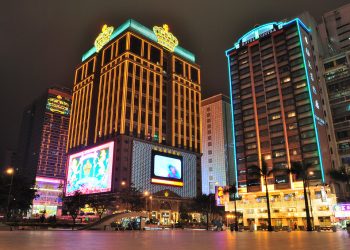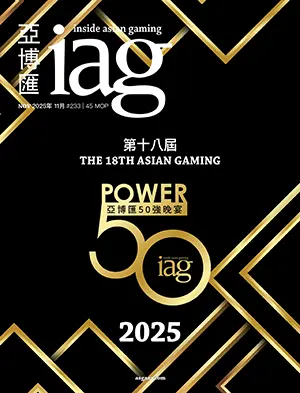A red-hot Macau casino market got some additional stoking this week with the news that China’s manufacturing sector is accelerating more than expected.
VIP volumes, which account for two-thirds of the territory’s world-leading gaming revenues, tend to closely track GDP growth in their principal feeder market, and in the latest sign that that market is on the rebound, a preliminary release by HSBC Holdings and Markit Economics of their closely watched Purchasing Managers Index—a gauge of sentiment generally viewed as a bellwether for the health of the world’s second-largest economy—showed the number at its highest level in six months.
After the country’s slowing growth had continued into the first half of this year, concerns were raised that the government would not realize its 7.5% growth target for 2013. But those fears have begun to ease, with the HSBC release adding to a number of recent positive data points.
The bank’s September “flash PMI,” as it’s called, is based on responses to surveys sent to more than 420 manufacturers. It came in at 51.2, surpassing August’s 51.0, the highest since April 2012, and beating the 50.9 median estimate of 14 economists polled by Bloomberg News.
A reading of 50 or above indicates an acceleration of manufacturing activity. Readings below 50 had been the norm for months.
The report also showed increases in output, new orders, export orders and prices, while employment fell at a slower rate.
HSBC China economist Hong Bin Qu told CNNMoney that factories are experiencing “firmer footing” on the back of higher foreign and domestic demand, which is expected to remain strong as government stimulus measures continue to boost the economy.
“This will create more favorable conditions to push forward reforms,” he said, “which should in turn boost mid- and long-term growth outlooks.”
The mainland’s benchmark Shanghai Composite Index jumped 1% on the news.
A final PMI from HSBC and Markit will be released 30th September. The National Bureau of Statistics will publish the official index, derived from a bigger sample size, on 1st October.
Meanwhile, government data released earlier this month showed industrial output grew in August at a faster pace and exports rose 7.2%, the most since April, before a crackdown on falsified trade data curbed subsequent results. At the same time, the broadest measure of new credit almost doubled in August from the previous month to CNY1.57 trillion (US$257 billion). Bloomberg says this indicates that the leadership, which is grappling with problems posed by a massive shadow banking system, is committed to achieving targets even at the cost of adding financial risks.
Citigroup earlier this month raised its third-quarter growth forecast to 7.8% from 7.4%. Deutsche Bank increased its estimate to 7.9% from 7.7%, the second boost in a month.
On a cautionary note, Nomura’s chief China economist, Zhang Zhi Wei, said he doesn’t expect the recovery to last beyond November because monetary policy may tighten after an upcoming Communist Party meeting. He forecasts 2014 growth to slow to 6.9%, and in a note to investors earlier this week, said, “We expect the government to shift its focus away from the speed of growth, towards efforts to rebalance the economy and improve the quality of growth.”
The country needs to maintain annual growth above 6.8% until 2020 to meet a target of doubling gross domestic product from 2010, a goal set at last year’s Communist Party Congress. Vice Finance Minister Zhu Guang Yao reiterated that goal in a 17th September speech posted on the ministry’s Web site.








-120x86.jpg)

























